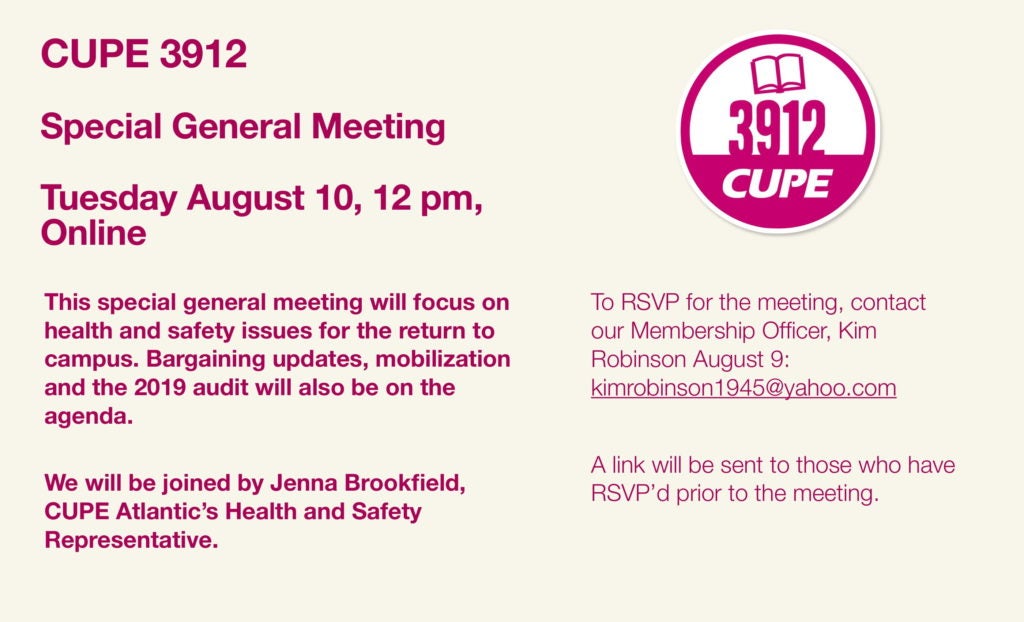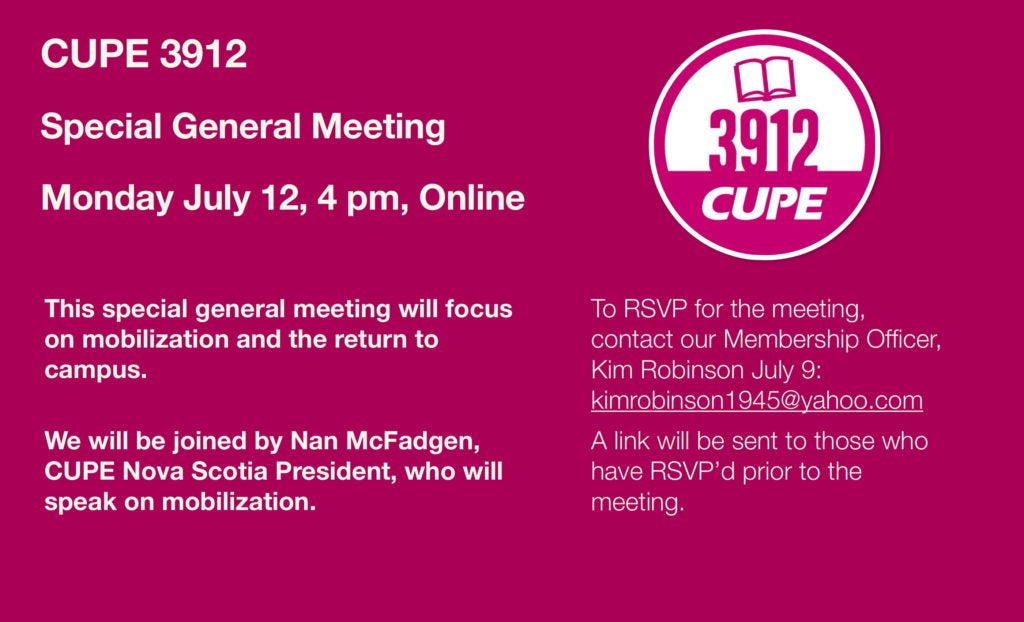CUPE 3912 joins CUPE members and locals across Canada in offering sincere condolences to the family and friends of the Afzaal and Salman families, who were the victims of Islamophobic hate in London Ontario. This violence left four people dead — three generations of a family — and a child remains in hospital. Police have confirmed that the violence was intentional and motivated by hatred towards Muslim people and their Islamic faith.
You can read CUPE National’s statement here.
As the extended Afzaal family notes in their statement, this is not an isolated incident, but rather “We need to understand that the destruction of a family in a brutal and horrific manner like this is something we must all stand against. We need to stand against hate and Islamophobia and raise awareness in our communities and throughout the political spectrum.” The sentiment is echoed by Imam Abdallah Yousri of Ummah Mosque in Halifax: “We all see a spike in Islamophobic attacks, in hate speeches, and in hate crimes all around the country. And, it is very obvious that we are not doing enough.”
As academic workers and educators, we have platforms and opportunities to incorporate anti-racist practices into our workplaces and to confront white supremacist rhetoric, ideologies, and structures. As academic workers, we also acknowledge that one of the victims, Madiha Salman, was a PhD student at Western University in Civil Engineering. Universities provide anti-oppression and anti-racism training, and we urge you to take advantage of these resources to make our classrooms, offices, seminars, laboratories, and communities spaces that confront hatred in all its forms, and spaces that better support our racialized and BIPOC students and colleagues.
For those wanting to take action now, here is the online fundraising account approved by the family you can donate to. Furthermore, the National Council of Canadian Muslims is calling on people across Canada to change their social media profile pictures to the image of a green ribbon. They are also calling for a National Action Summit on Islamophobia for federal, provincial, territorial and municipal leaders to determine immediate actions to dismantle Islamophobia. You can sign the petition to support these calls here.
Members is HRM can attend a community vigil, that will be held outdoors at the Ummah Mosque, this evening, Wednesday June 7 at 7 pm. The Mosque is located at 6225 Chebucto Road, and entrance for limited parking from Chebucto Road and St Matthias St. Mandatory public health measures will be enforced. Please help volunteers by following the instructions.
CUPE 3912 honours and mourns the Afzaal and Salman families. We stand in solidarity with the Muslim community across Canada in condemning Islamophobia and confronting hatred and discrimination.



